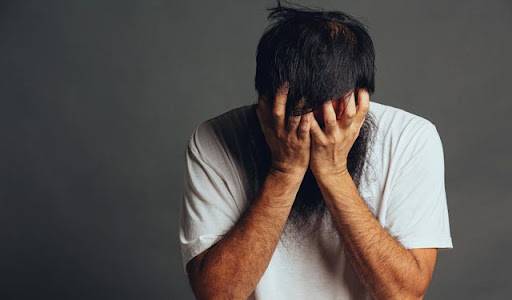Our Wellness Programs
Introduction
Demand and needs are two critical factors, and people make many decisions according to them.
The former relates to things people want, e.g., a new car, while the latter deals with requirements, e.g., groceries. However, people sometimes blur the difference between both and do impulsive buying, which causes issues like feelings of anxiety.
In this article, we will discuss the interrelation between the two and how to overcome the condition.

Looking for services related to this subject? Get in touch with these experts today!!
Experts

Banani Das Dhar

India
Wellness Expert
Experience: 7 years

Devika Gupta

India
Wellness Expert
Experience: 4 years

Trupti Rakesh valotia

India
Wellness Expert
Experience: 3 years

Sarvjeet Kumar Yadav

India
Wellness Expert
Experience: 15 years

Shubham Baliyan

India
Wellness Expert
Experience: 2 years
What is impulsive buying?
In the context of what is impulsive buying, it refers to people buying something that they do not need or do not have any plan to purchase. Sudden splurges on things one did not pre-plan to buy fall under this category.
There are different examples of impulsive buying; they include both small-scale purchases and significant acquisitions. Every person has at least once bought items they wanted on a whim. But the problem occurs when it becomes a recurring habit or people begin buying more than they make.
Impulsive buying and anxiety are very interlinked. People who have impulse control issues feel very eager and quick to make decisions. So, they act out spontaneously. That can increase anxiety later when the feeling expires, and they evaluate how it affected them financially.
What is anxiety?
Anxiety is an uneasy type of feeling, similar to fear or worry. It starts mildly and, in extreme cases, can turn severe. Typically, this problem passes over after some time.
The familiar anxiety symptoms include racing heart, shortness of breath, and sweatiness [1].
On an extreme level, anxiety can seriously affect mental health and interfere with relationships and daily lifestyle. If the condition becomes severe, people with anxiety disorder feel even small, harmful situations as bigger than reality.
Emotions do affect people’s behavior, like their buying decisions. Some people do this when they are happy, while others choose to make impulsive purchases when they feel anxious or stressed.
Biologically, this happens because feelings of tension, pressure, and anxiety activate the amygdala, a built-in alarm inside the brain [2]. This function is responsible for keeping people alert and safe. So, it prompts people to do things that bring them comfort when triggered by stress, regardless of the cause.

Dealing with anxiety and impulsiveness
There are multiple methods available that people struggling with impulse control or an anxiety disorder can use to avoid impulsive buying behavior. Here are some of the best ways.
1. List out your expenditure point.
It would also help to keep a separate journal to note your expenses to grasp a consistent spending pattern. Keeping track of the habits and the transactions would help you understand how much you spend. Also, you would learn how often you make such charges and what you usually buy.
2. Budget planning.
Then, plan a basic budget manually or using online tools. Then, make sure to stick to your set budget. Like for weight loss periods, you can allow some small moments of self-indulgence, but in a controlled manner within the budget.
3. Avoid self-blaming.
After irresponsive shopping splurges, people can feel guilty and then blame themselves. This feeling increases anxiety and triggers impulsive buying, becoming a circle of negative energy.
So, avoid doing this. Instead, return it to the shop later if an item is refundable. Then, recommit to the plan.
4. Develop a gratitude-based attitude.
There are many unknown variables and reasons in life when most people feel anxious. Instead of stressing about such conditions, adopt a new attitude focused on gratitude.
Keep a gratitude journal where you can write down the things. Read it whenever you feel anxious.
5. Take a day to think before a purchase.
While you are night-time online shopping, every item would feel necessary for future use. During these periods, give yourself 24 hours. During that period, the urge to buy the item would reduce.
What are the Examples of Impulse?
Particular factors compel people to impulse buy or promote the sudden want to do so. They include:
- Emotional triggers like frustration, sadness, or anxiety
- Nostalgia from past experiences
- Shopping addiction
- Getting a good offer/discount deal/sale
Such feelings compel people to indulge in impulsive buying behavior, and you should take your time to handle the issues quickly. Most of the time, people do not impulsively buy big or expensive items and only make small purchases.
For example, while standing in line at the supermarket or shop, they see chocolates or coffee. Even though it is not on the list, they buy it. The ramifications are not always serious, but handling the issue can deteriorate impulsive buying behavior. People can increase their level of purchases in terms of cost and number of items.
Examples of impulse-based buying include:
- Video games
- Clothing/shoes
- Accessories like jewelry or bags
- Energy drinks, gum, or candy
- Takeout food
- Toys
- Books
- Extravagant purchases like cars or vacation houses
Anxiety and Mental Health– What To Look After
Retail therapy is a common approach many individuals take to feel good about their situation and relieve anxious thoughts. For example, some people buy things they enjoy to reduce their feelings of anxiety in other areas of their life, like getting an expensive dress after a breakup.
To work on your anxiety and mental health, you can hire a professional counselor for top-notch guidance and support! They would provide additional help, but you should take measures to improve your condition.
Use different exercises like controlled breathing, mindfulness, and relaxation to adjust your focus. These exercises will reduce your tension and decrease the intensity during your trigger periods.
So, take the time to understand the reason for the feelings and assess your thoughts. You can use a journal to note down your thoughts and feelings at a time and read it later. Keep it near you and write down everything whenever they get very overwhelming. This approach will help you look at the bigger picture more often.
Learn more about Hyperfixation vs. Hyperfocus
Do you think life is pointless?
Know about How To Make Him Worry About Losing You?
Conclusion
A feeling of anxiety can cause bouts of impulsive purchases, increasing stress later. It would be best if you took the time to understand your condition and the causes and record your mood and expenses. Talk to the best professional mental healthcare specialists for their advice and help with your anxiety disorder for the best results.
Follow our Social Media for more updates:
References
| [1] | A. Felman, “What to know about anxiety,” Medicalnewstoday.com, Jan. 11, 2020. https://www.medicalnewstoday.com/articles/323454 (accessed Jul. 28, 2022). |
| [2] | T. Steimer, “The biology of fear- and anxiety-related behaviors,” Dialogues in Clinical Neuroscience, vol. 4, no. 3, pp. 231–249, Sep. 2002, doi: 10.31887/dcns.2002.4.3/tsteimer. |



 Conflict Management in Relationships
Conflict Management in Relationships
 Healing from Heartbreak
Healing from Heartbreak Coping With Anxiety
Coping With Anxiety Get Started With Mindfulness
Get Started With Mindfulness






